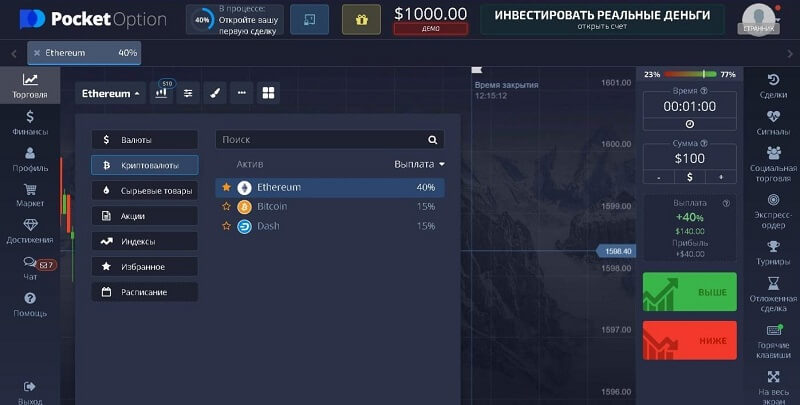
In the evolving landscape of online trading, platforms like Pocket Option AML Policy Pocket Option AML Policy play a crucial role in maintaining the integrity of financial transactions. The policy is designed to comply with international standards and regulations aimed at preventing money laundering and other illicit financial activities. This article delves into the core components of the AML policy, its importance for traders, and how it influences the operational framework of Pocket Option.
What is Money Laundering?
Money laundering is the process by which criminals disguise the original ownership and control of proceeds generated by illegal activities. The goal is to make these funds appear legitimate, often by moving them through a complex sequence of banking transfers or commercial transactions. Given the anonymity that online trading platforms can provide, the risk of money laundering is heightened, necessitating robust AML policies to mitigate these risks.
Significance of AML Policies
AML policies are not just regulatory obligations; they are essential for building trust with customers, maintaining a good reputation, and ensuring the long-term viability of trading platforms. For Pocket Option, adherence to a stringent AML policy marks its commitment to legal compliance and ethical practices in financial trading. By effectively implementing these measures, the platform can help prevent financial crimes that could undermine trader confidence and financial markets in general.
Pocket Option’s Approach to AML Compliance
The Pocket Option AML Policy consists of various components designed to detect and prevent money laundering activities. This includes structured customer verification processes, transaction monitoring, and reporting suspicious activities to the appropriate authorities. Furthermore, Pocket Option maintains a culture of compliance through ongoing training for its employees, keeping them informed about the latest trends in money laundering techniques and the regulatory landscape.
1. Customer Due Diligence (CDD)
One of the cornerstones of the AML policy is Customer Due Diligence (CDD). This process involves verifying the identity of customers before establishing a business relationship. Pocket Option utilizes various methods, including government-issued identification and proof of address, to ensure that all clients are who they claim to be. This initial verification helps to rule out potential high-risk individuals from the outset.

2. Transaction Monitoring
After onboarding customers, Pocket Option employs sophisticated algorithms to continuously monitor transactions for unusual patterns. This system is designed to flag any transactions that deviate from the norm or appear suspicious. For example, if a trader initiates a withdrawal of funds that is significantly higher than their average trading volume, the system may trigger an alert for further investigation.
3. Reporting Obligations
If any suspicious activity is detected, the Pocket Option AML policy mandates reporting these findings to relevant financial authorities. This not only fulfills Pocket Option’s legal obligations but also contributes to the larger fight against financial crime. These reports enable regulatory bodies to take necessary actions, which is crucial for maintaining the integrity of the trading ecosystem.
Legal Framework and International Standards
The Pocket Option AML Policy is designed in alignment with global regulatory practices. The platform is committed to adhering to the recommendations set forth by organizations such as the Financial Action Task Force (FATF) and local regulatory authorities. This commitment ensures that Pocket Option not only fulfills its legal requirements but also takes an ethical stance against money laundering.
Implications for Traders
For traders on Pocket Option, understanding the implications of the AML policy is essential. It ensures a safer trading environment where the risks of financial crime are minimized. By engaging with a platform that prioritizes compliance, traders can operate confidently, knowing that their transactions are being monitored and protected. Additionally, a strict AML framework can enhance the long-term sustainability of the trading platform, ultimately benefiting all users.
Conclusion
In summary, the Pocket Option AML Policy serves as a robust framework for ensuring a secure environment for online trading. By implementing effective customer verification, transaction monitoring, and reporting measures, Pocket Option demonstrates its commitment to combating money laundering. Traders can rest assured that their investments and transactions are protected by stringent compliance with international standards. Understanding and appreciating the importance of such policies can contribute to a more transparent and secure financial trading landscape.
